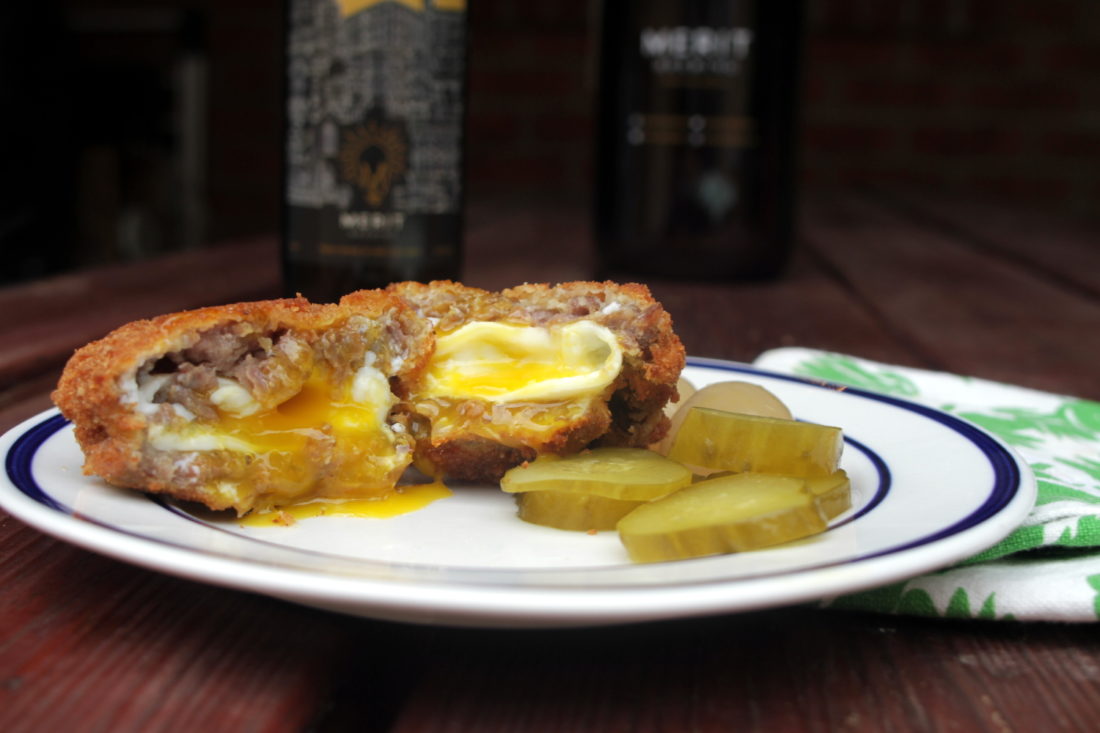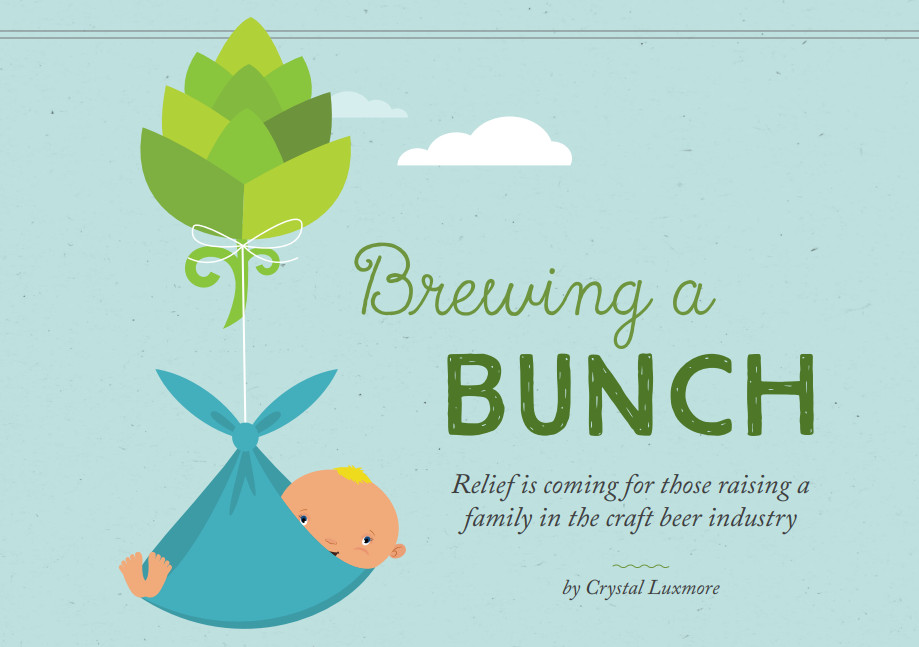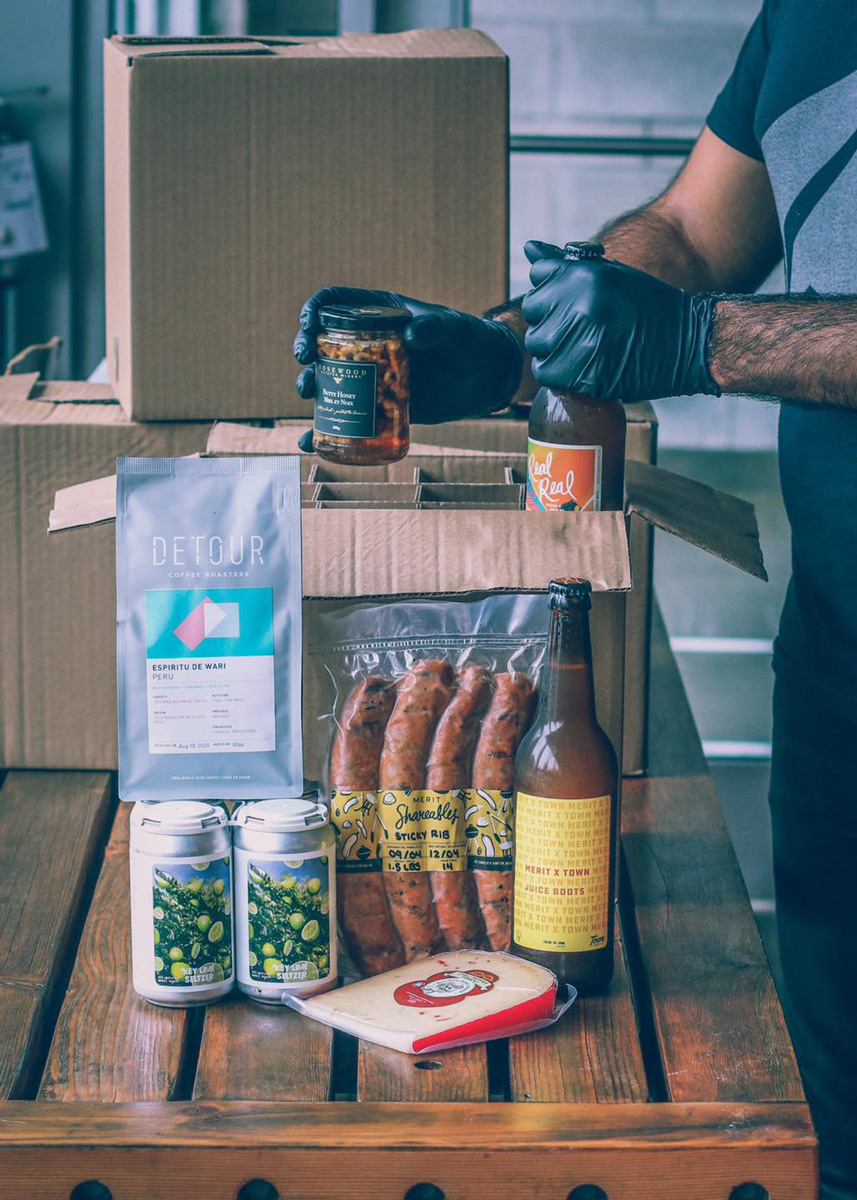
After the government ordered breweries to close their taprooms last spring, new doors opened. Archaic alcohol restrictions loosened so that you can now order beer with your Uber Eats dinner or grab a selection of alcohol from a brewery or indie bottleshop. Plus, craft brewers themselves are leaning into the virtual space in a much deeper way, offering us new tasting experiences and doorstep beer delivery.
It’s arguably now the best time in history to be a craft beer drinker in Ontario, but when the pandemic is over, what will our beer culture look like? What will last, and what will fall? We’ve asked four Ontario craft beer leaders to predict the Future of Beer.
Craft breweries will be Ontario’s foodie “Depanneurs”
 by Tej Jordan Sandhu, co-founder and owner MERIT Brewing Company
by Tej Jordan Sandhu, co-founder and owner MERIT Brewing Company
Early this summer, after the Ontario government relaxed alcohol rules and allowed craft breweries to carry alcoholic beverages from other producers, we started a wine and cider program here at Merit. We quickly found a sweet spot bringing in a rotating offering of bottles from natural, bio and low-intervention Ontario and global winemakers and cideries that reflect the same values and consumption preferences as the people drinking our beer.
We have barrel-fermented chardonnays from local producers, Rosewood Estates Winery, alongside more of their esoteric offerings, plus an international selection that includes the Blaufränkish from Meinklang, an iconic Austrian natural wine producer.
We’re doubling down on the program because it’s been so successful, currently it makes up 8 to 10 per cent of our sales. One of the coolest parts about it is that these products haven’t cannibalized our
own beer sales. People are not grabbing wine instead of six Young Rival IPA, they’re grabbing the wine as well.
In future, a craft brewery’s retail store will act as a one-stop, speciality bottle shop—and if it has a kitchen, it’ll likely sell prepared food options to match.
New breweries will build out retail shops with this new product mix in mind, and I think it’ll be a very cool shopping experience for craft beer drinkers.
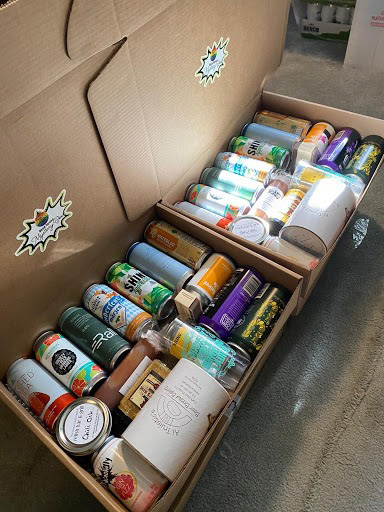
Beer festivals will go micro and offer at-home tasting experiences
 by Erica Campbell, co-founder & co-organizer Society of Beer Drinking Ladies
by Erica Campbell, co-founder & co-organizer Society of Beer Drinking Ladies
Large beer fests are not happening anytime soon, but people are still looking for ways to connect over beer. Once we get past the second wave, we’ll start to see intimate ”micro” beer events cropping up, especially outdoors.
I envision them as 50 to 100 attendees and more of a curated beer experience, perhaps featuring beers from one brewery, or highlighting one beer style. Ticket prices will be higher to account for the new costs of PPE, and staggered entry with shorter sessions will let waves of folks attend while social distancing. Some events might hand out drinking-friendly masks, (equipped with flaps to enable masked sipping through a straw) at the door to prevent the spread of the virus.
To continue serving the communities that we’ve worked so hard to build, a handful of event organizers are offering beer experiences for home delivery. This fall Sour Palooza and Beau’s Oktoberfest shipped tasting boxes with unique beers to people’s homes and hosted a live virtual fest to sip along. At The Society of Beer Drinking Ladies HQ, we pivoted from hosting in-person events to launching a ‘Beer Squad Mystery Box’ concept—a bi-monthly box jammed full of beer, cider, spirits and artisan goods from womxn small businesses we love, with a $500 donation to Black Women in Motion with each round. The first box sold out in one hour, so we doubled the amount for the second round and they sold out in 24 hours.
In fact, all three of these experiences sold out—showing a thirst for unique, curated beer products. We’ll see some event organizers making these products a permanent offering as a way to keep the festival vibe going year round.
A brewery’s social media manager will be as important as its sales manager
 by Tiffany A. Davey, co-founder and partner, High Season Co.
by Tiffany A. Davey, co-founder and partner, High Season Co.
Craft beer is largely a traditional industry and the methods used to get beer into consumers’ hands are driven by hard-working sales professionals on the ground. These individuals visit bars and restaurants with select beers in hand to convert them into clients, keep our LCBO shelves stocked, line up beer festivals, and schmooze with fellow industry folks.
These tasks are mostly—if not all—offline. The pandemic, however, hasn’t just changed these techniques, it’s changed the entire playing field—now the majority of that work has to be done online.
Many breweries were not well prepared for this seismic shift. Prior to COVID-19, the job of social media for many craft breweries often fell to the wayside, undervalued as a sales tool and tasked to someone at the brewery who showed a slight interest in Instagram, or even worse, not utilized at all. It’s no mystery that the breweries that dominated social prior to COVID-19 seemed to thrive on the other side, while others have had to empty their tanks and close their doors.
To survive, breweries are radically expanding their sales methods—a trend that will continue post-pandemic. Your craft brewery will have an “always open” online presence populated with beer fans who are ready to support the businesses and owners that they love. Crucial to the success of this vision? An expert social media manager who is just as essential as the brewery’s sales manager.
The breweries that “staff up” for online to connect with and sell great products to consumers will thrive in the post-pandemic world because COVID-19 has changed where and how we shop for beer, and connect with craft breweries, not just for now, but forever.
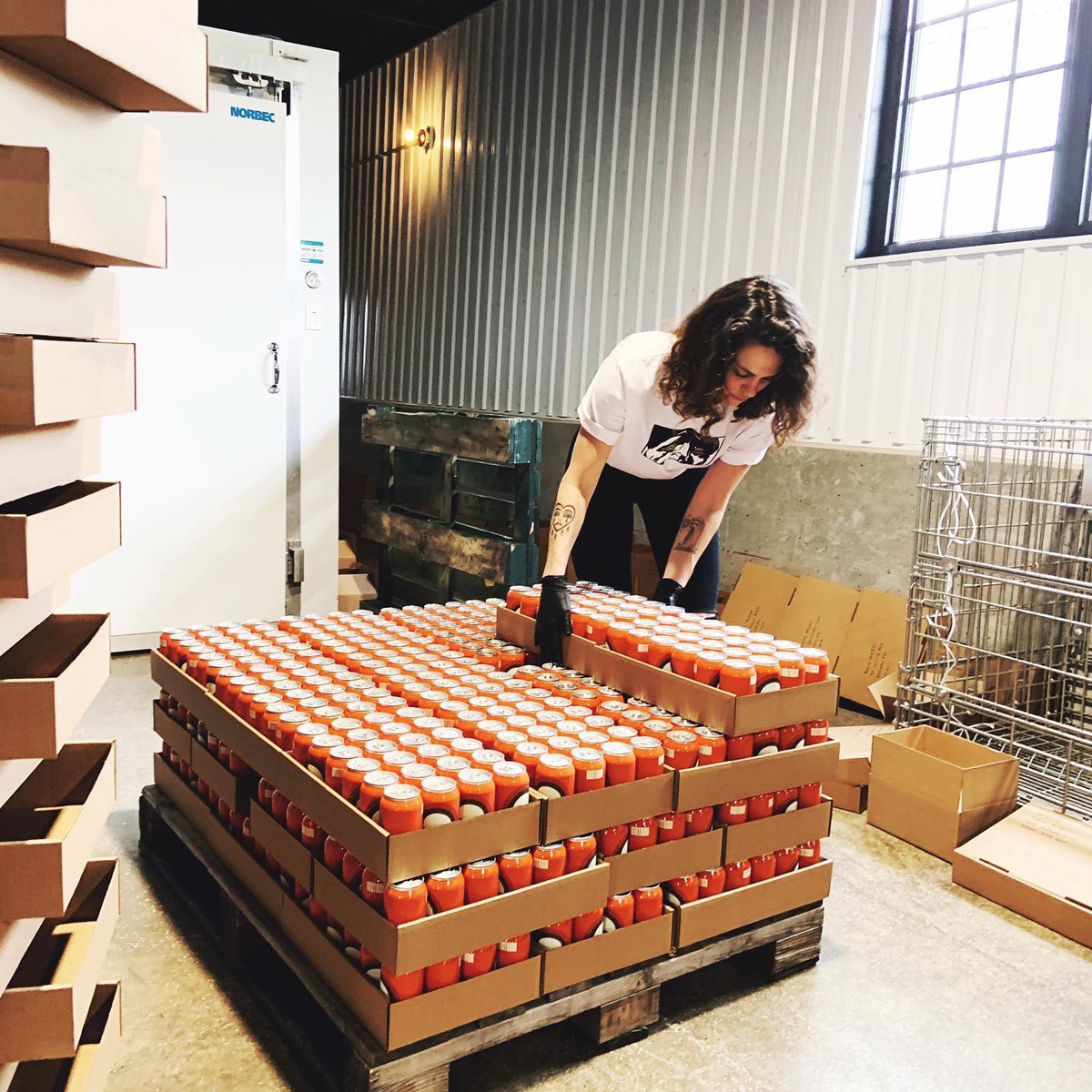
E-commerce could save Ontario breweries this winter
 by Mallory Jones, owner, co-founder and president, Matron Fine Beer
by Mallory Jones, owner, co-founder and president, Matron Fine Beer
In the fluctuating landscape of 2020, many business owners are facing the biggest challenges of their careers. For those of us in the brewing world, this has taken the form of navigating what feels like ever changing sales channels.
Mandated business closures during the initial months of the pandemic made online sales a vital channel. The demand for contactless delivery of “affordable luxuries,” like craft beer from niche breweries, soared as we all reached for some form of tangible comfort. Then came summer’s warmer weather and reduced restrictions which dramatically shifted things. Online sales tapered off as staycations and domestic travel ramped up.
Now, with the first snow dumps of the year we’re seeing an increase in government regulations, decreased travel and frigid patio weather, which is forcing a shift in how and where we can sell our beer, yet again. The ease of online shopping combined with to-your-door delivery is now vital to our survival as an industry.
At Matron we’ve learned to adapt to the rapidly changing market: we’ve leaned into online sales and home delivery. In fact, we predict that to make up for the shortfall in bar and restaurant sales, breweries will need to sell up to half of their beer online this winter to survive.
On the flipside, you, the craft beer drinker, have gained incredible access to the majority of Ontario breweries, whether it be shopping directly from the brewery’s website, or supporting one of the many independent bottle shops that have sprung up. These alternatives do, however, come with added costs, like paying for shipping or paying a markup for the convenience cost of getting hard-to-find cans at a boutique, local bottle shop.
Survival for destination breweries like ours hinges on drinkers embracing their newly-found access to craft beer from these emerging channels—and being open to a slight increase in price to support them.



